
- This event has passed.
2019 FMA Visit to Romania
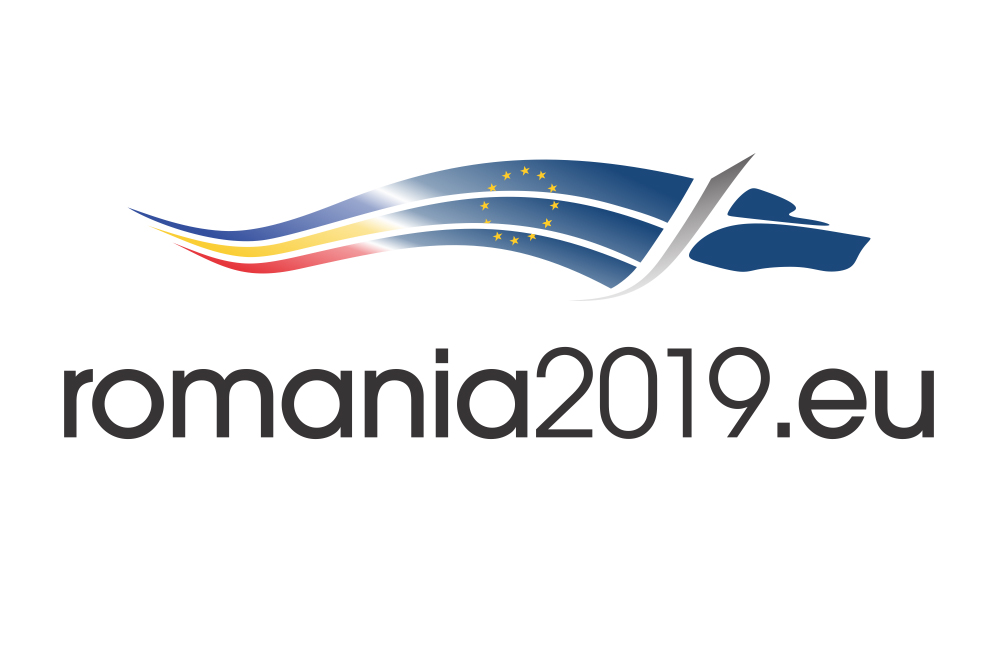
Files
The FMA Board member Brigitte Langenhagen led an FMA delegation composed of 11 former MEPs from seven EU countries (DE, ES, FR, IT, LU, NL, and UK) and different European political families (EPP-ED, Socialists, Liberals and Greens), that visited Romania from 03 to 04 June on the occasion of the Presidency of the Council of the EU. The FMA in co-operation with the Romanian Parliament set up a programme aimed at evaluating progress towards achievements of the EU Presidency. It included official meetings with Parliament, government as well as an open debate with university students and a visit to the Institute of Atomic Physics.
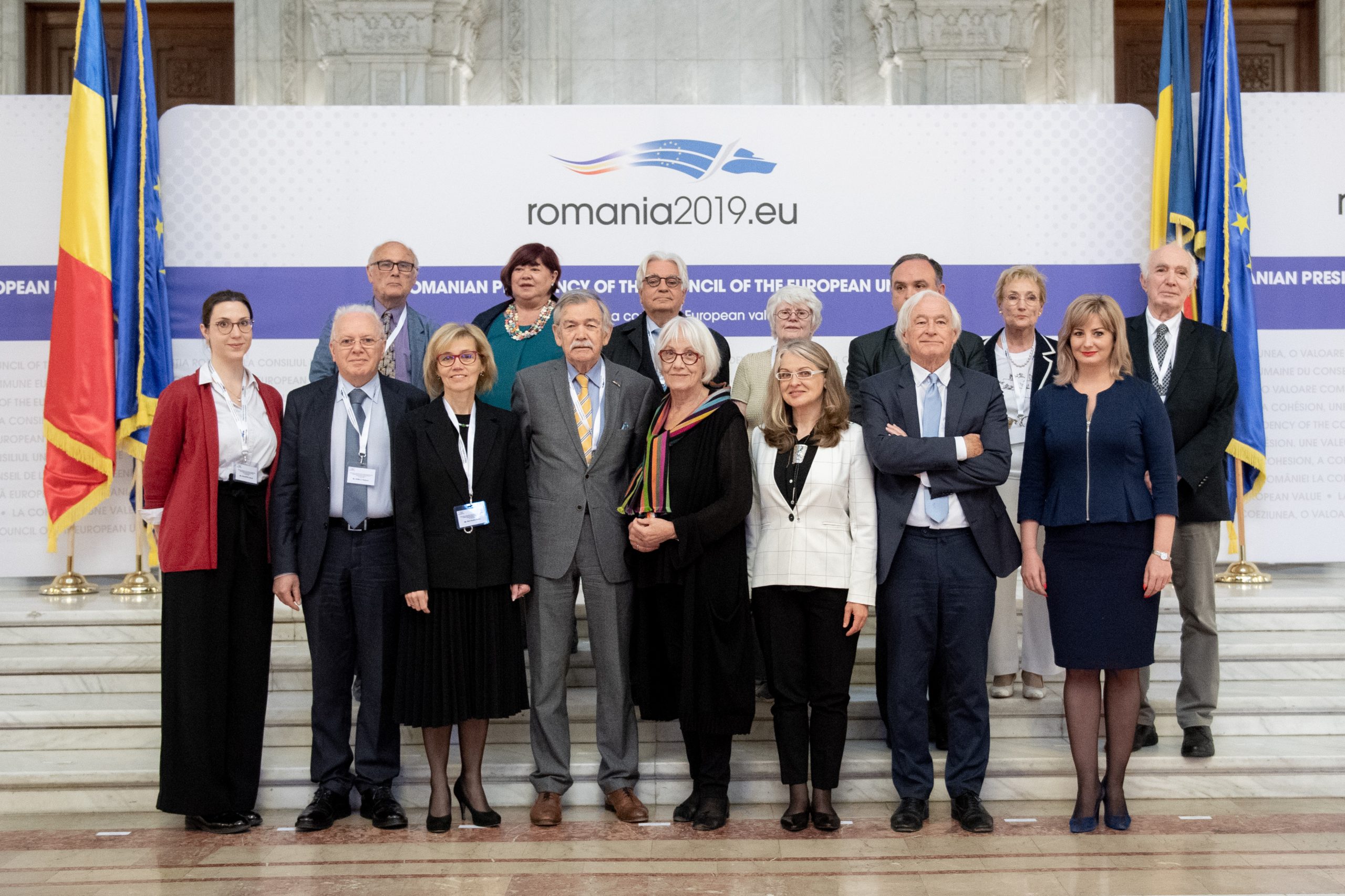
One of the highlights of the visit was the meeting with representatives of the European Affairs Committees and the Foreign Affairs Committees from the Romanian Chamber of Deputies and the Romanian Senate at the premises of the Romanian Palace of Parliament. The primary subject of the dialogue featured the Romanian Presidency of the Council whose achievements and priorities were firstly presented, followed by an exchange of views on priorities and difficulties of the Romanian Presidency of the Council of the European Union 2019. Mr Bob van den Bos evaluated the morning sessions as follows:
“The morning sessions in the Parliament have been very valuable, especially concerning the Romanian Presidency. We became more aware of the concrete achievements of the Romanian Presidency and also of all the obstacles the Romanians had to face. We were impressed by their cooperation with the EU Institutions and with the national Parliaments, which was of great additional value to make the RO Presidency a success – despite all the problems they had to face, in particular the internal instability and internal conflicts, and of course Brexit and the EU-elections, which meant that the Presidency in fact was only a question of two or three month instead of six.”
Bob van den Bos
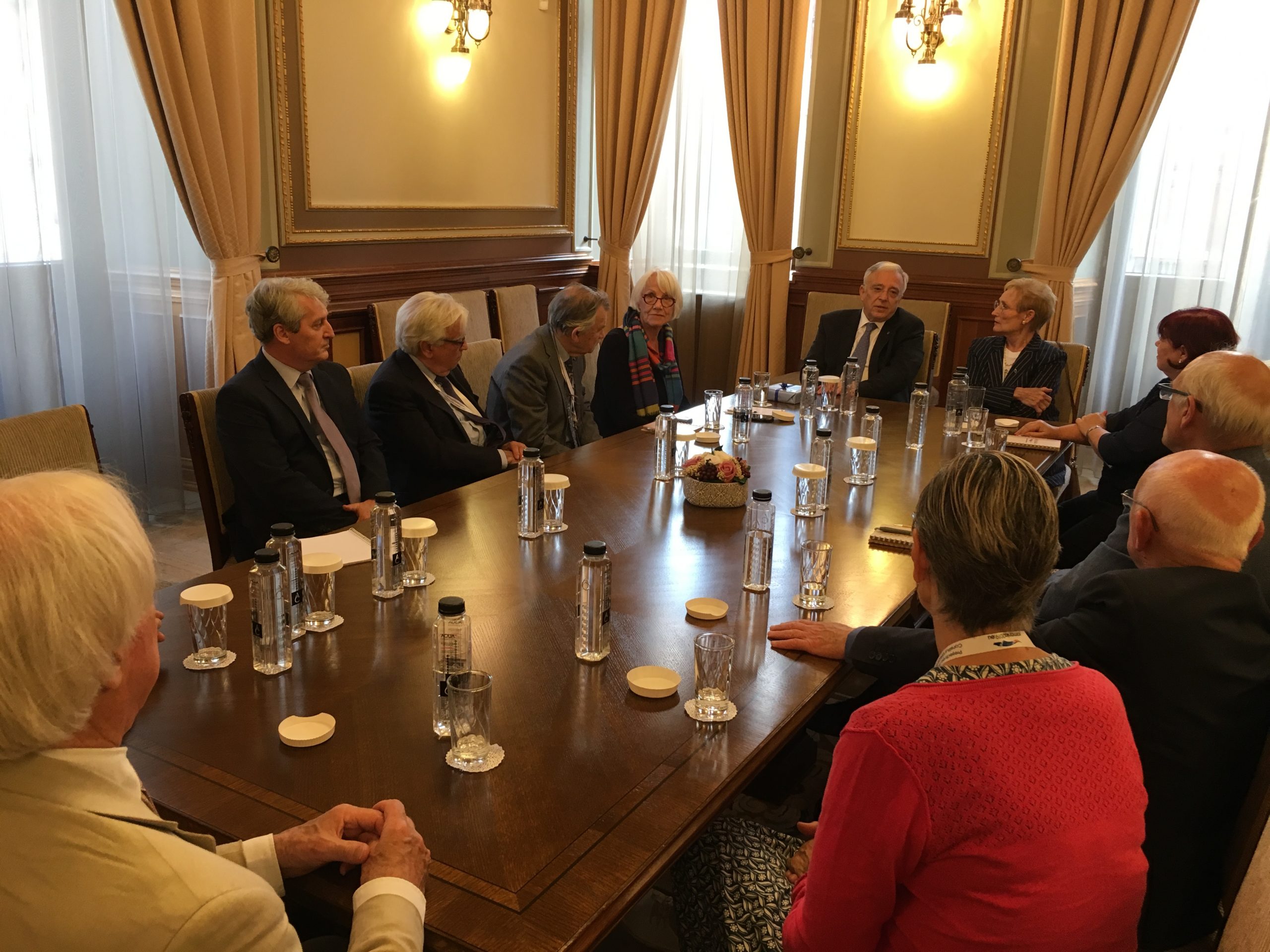
The Delegation also had the great honour to meet Constantin Mugur Isărescu, Governor of the National Bank of Romania, who not only organised a visit through the prestigious premises and National Bank’s museum but also invited the delegation to a meeting to discuss primarily Romania’s financial situation and adhesion to the European Central Bank. Robert Moreland describes the visit:
“The Governor took us on an interesting tour of the bank including some of the coins that had been used and their access to gold that has always been good. We then had a discussion with him where he outlined that Romania had had a strong banking history and was of course now preparing joining the Euro and the Central bank. He said there were some problems obviously but their growth rate has been good, also the debt had been low – the national debt has been 40% of the GDP, so they did fulfil some of the criteria. Their big problem was inflation that was higher than the average in Europe but they hoped to join the Euro in about 2024. He was very optimistic – indeed he used the word optimistic about the bank its management and so on forth.”
Robert Moreland
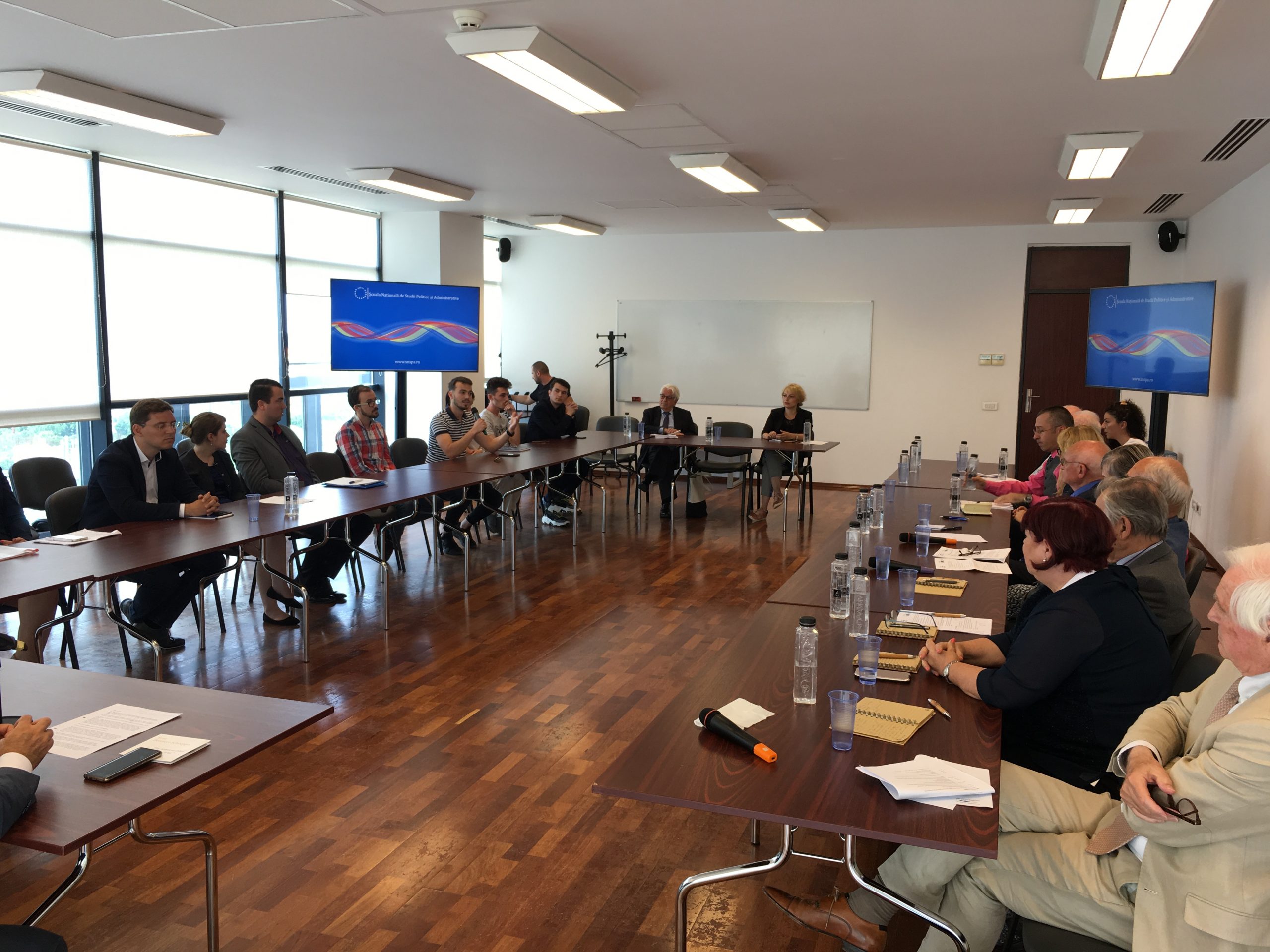
The National University of Political Studies and Public Administration – SNSPA, is one of the most prestigious Universities in Romania and most students will later on work in high ranked jobs or become politicians. The open debate organised together with one of the Vice-Rectos of the University allowed the delegation to get an in-depth insight on student’s opinions on the EU and the European Elections in Romania:
“The visit to the National School of Political Science and Public Administration (SNSPA) began with a greeting and presentation of the delegation by Mme Brigitte Langenhagen as head of the delegation. Afterwards, the director of the Centre dedicated a few words to the importance of the University as a training centre for future political leaders and senior officials, both Romanian and international. Mme Erna Hennicot-Schoepges reflected on the history of the European Union and the importance of universities in the construction process. This was followed by a very interesting debate with the students, who despite being in the examination period wanted to attend the meeting very motivated especially about the results of the last European elections and the increase in the presence of anti-European parties and whether this could block or paralyse progress in the policies of the Union. The environmental issue also came up in several questions and as well as their scepticism about the position of the Trump administration or the Brazilian president and the lack of commitments in pollution control. Finally, Mr. Jan-Willem Bertens appealed to the European spirit and the importance of young people in the process of European construction.” –
Teresa Domingo
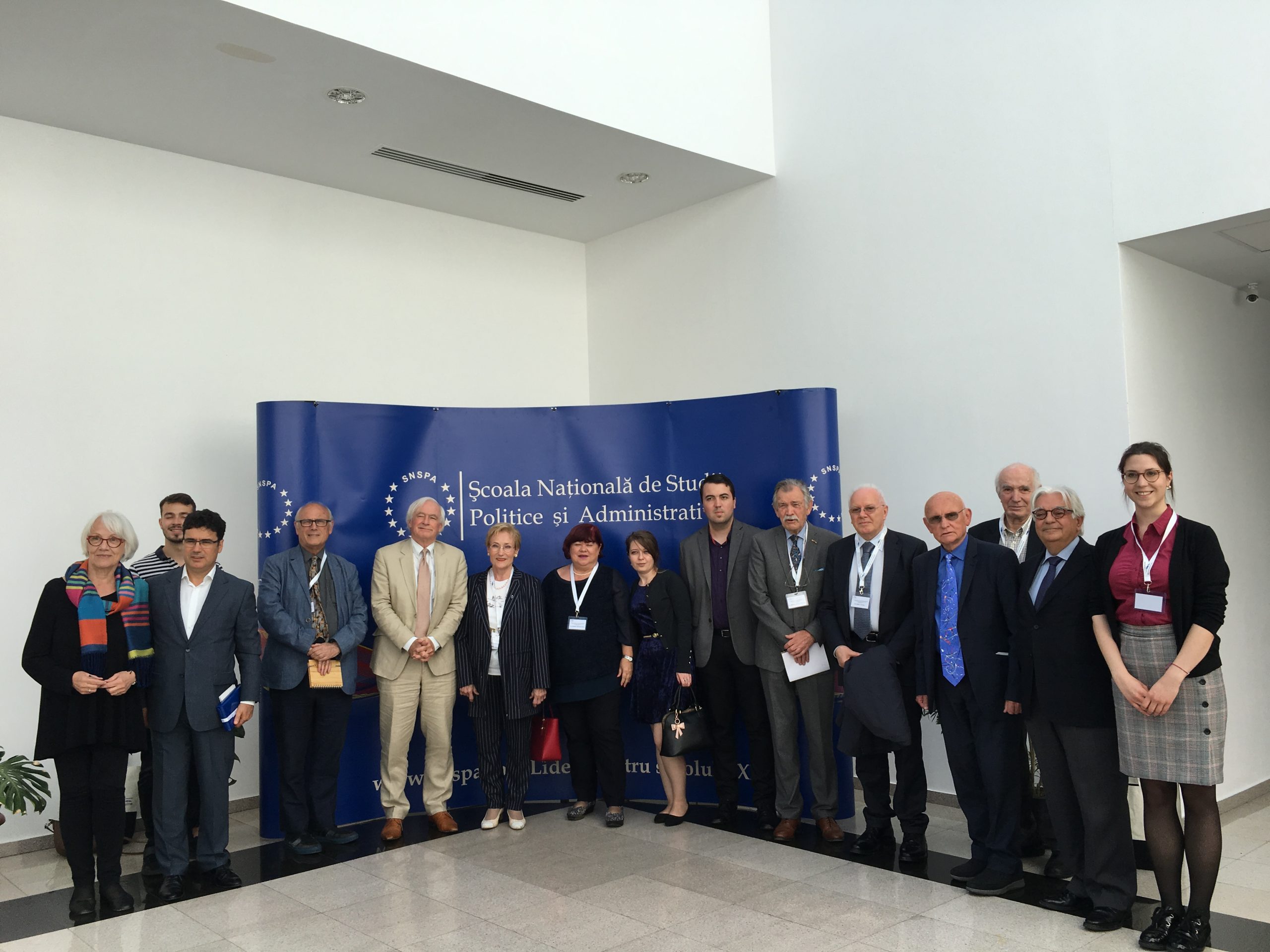
A complete report on the visit will be published in the September Bulletin. Photos of the visit are available here.
